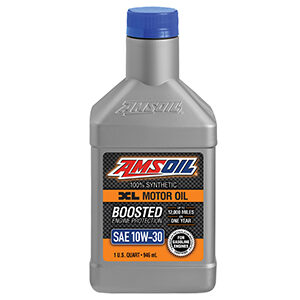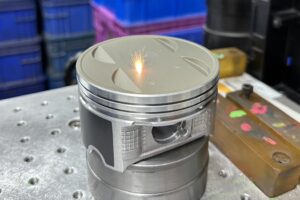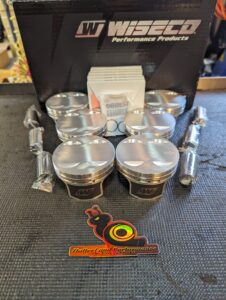Maximizing J-Series Engine Performance Through Optimal Oil Viscosity & Piston Material
October 25th, 2023 Posted by hondajseries 1000HP Jseries engine, Honda Acura Jseries Pistons, Honda J Series Engine, Honda J series Motor, Honda J Series Throttle Body Spacers, Honda J-Series 3.7 Intake, Honda J-Series engine, Honda J-Series Performance Parts, Honda J30 performance, Honda J32 Performance, Honda J35 Perfromance, Honda J37 Performance, Honda Jseries 3.7 ZDX Throttle Body, Honda Jseries Intake Manifold spacers, J series Performance parts, J-Series Piston Material, J30, J32, J35, J37, Super Charged J-Series, Turbo J Series, Uncategorized 0 thoughts on “Maximizing J-Series Engine Performance Through Optimal Oil Viscosity & Piston Material”** Maximizing J-Series Engine Performance Through Optimal Oil Viscosity and Piston Material **

Amsoil 10-30 Boosted Oil Available through our online store click “Shop”
https://halferlandperformance-com.3dcartstores.com/Maintenance-Oils-Fluids_c_37.html
The performance and longevity of J-Series engines largely depend on a variety of factors, with oil viscosity playing a pivotal role. In this article, we’ll delve a little into the importance of oil viscosity for J-Series engines and its connection to horsepower ratings.
**Understanding the Role of Oil Viscosity**
Oil viscosity is a key factor in maintaining the health and performance of a J-Series engine. The viscosity of engine oil dictates its flow characteristics and ability to provide proper lubrication under varying conditions. For J-Series engines, specific oil viscosity ratings, like 0W-20 or 5W-20, are recommended by the manufacturer to ensure optimal engine performance, but when it comes to overall performance sometimes a thicker viscosity oil comes into play.
The first number in the viscosity rating indicates the oil’s flow characteristics in cold conditions (5W), while the second number signifies its behavior at higher or operating temperatures (20 or 30). Achieving the right viscosity ensures effective lubrication, minimizes friction, and reduces wear and tear on engine components. This, in turn, contributes to a healthy engine and optimized performance. There are also a few factors that play into an oil’s role within the engine, with viscosity being the largest . Oil in its simplest form acts as a barrier or cushion between two metal parts, with metal on metal obviously not being good. If you have ever heard someone say they found “gold flakes” in their oil, in that case the rods and crank journals have worn enough into the bearing to shed away the upper layers and have made its way down to the copper layer of the bearing – AKA worn bearings. This can come with age or usages, but usually here at HLP Products and with the high horsepower J-series engines we work with, those “Gold Flakes” usually means the engine load (horsepower) has out performed the bearing clearances or oil capabilities, usually in the form of the oils weight (thickness) or ability to maintain that “cushion” between metal parts. The higher the load capacity, rpm or horsepower exerted onto the engine usually means the more compression load the oil is having to fight. A thinner 20 weight oil may not have the load capabilities required for your particular setup, where in that case a thicker 30 weight oil may come into play. This is why here at HLP Products with any customer’s engine or HLP In-House Built J-Series Performance Engine, we usually end up suggesting or supplying the customer with a thicker 30 or 40 weight oil, depending on their application, usage and horsepower rating. Personally, here at HLP Products and since Bertha (our HLP R&D / Test 550whp Turbo J35A7 7th Gen Accord) went over the 100k mile mark, we switched the oil out from the stock 0W-20 oil to a thicker full synthetic 0W-30, 5w-30 or 10W-30 (again the second number being the “hot” or operating viscosity of the oil). While we reside here in Florida, the “W” winter or cold weight did not factor as much into our oil choice, we were more concerned about the operating viscosity of the oil.
In stock form the J-Series engine calls for 0W-20 or 5w-20 weight oil, which is very thin, low viscosity (thickness) and has very little drag on the rotating assembly. Honda’s ultimate goal was efficiency and MPG (mile per gallon) which was achieved with the thin 0W-20 weight oil suggested. In compliance with the thin viscosity oil also came tight tolerances on the rod and main bearing clearances. A heavy 50 weight oil would not operate the same in the tight oem clearances as the 20 weight oil. However, as these engines age and parts wear in, so do the bearing clearances, with usually them widening or getting larger. In turn, the thinner oem 20 weight oil has a much harder job creating and maintaining that oil cushion it requires in order to keep the rod and bearing separated. This is where a thicker viscosity oil would come into play.
If you had to boil this down to a rule of thumb and pertaining strictly to the J-series engine platform, we have found these rules to suit our and our customers’ needs the best. While there is some horsepower to be gained from a thinner operating viscosity of oil, the differences are negligible and are far outweighed by the reassurance , load capabilities and benefits of a thicker viscosity oil in your wider bearing clearance J-series engine, regardless if it’s from age or horsepower load.
* In all cases we suggest running a Full Synthetic Oil and once you have switched over you should stick with it…period * We offer the entire lineup of Amsoil Racing Oils, Daily Driver Oils, Break-In Oils, Transmission Fluids and Assembly Lubricant through our online store, click “shop”
– Naturally Aspirated = 0W-20 , 5W-20
– Naturally Aspirated Higher Mileage 100k+ = 0W-30 , 5W-30, 10W-30
– Naturally Aspirated / Full Bolt On = 0W-30 , 5W-30, 10W-30
– Nitrous / Forced Induction / Track / Drag = 5W-30, 10W-30, 5W-40 , 10W-40
– 800+ HP = 10W-40 , 10W-50, 15W-50
* All can be found through our Amsoil Racing Oil online store category and this link
https://halferlandperformance-com.3dcartstores.com/Engine-Oils-and-Lube_c_39.html
**Piston Materials: Cast vs. Hypereutectic vs. Forged**
The choice of piston material is a critical decision for enhancing the performance of a J-Series engine. Here, we’ll compare cast, hypereutectic, and forged pistons to help you make an informed decision.

HLP 2618 J32/J35 Hyper Pistons w/ Ceramic Coated Dome, Rated and Guaranteed for 1yr up to 800HP.

Wiseco 2618 Forged Pistons 1000HP + C-Clips + Lightweight Horned Wrist Pins + Ductile Nitride Piston Rings + FREE SHIPPING.
1. **Cast Pistons:** Cast pistons are the most budget-friendly option. These pistons are formed by pouring molten metal into a mold, making them cost-effective but less suitable for high-performance applications. These can usually be found in the form of OEM Honda and Acura, DNJ or any other “OEM” replacement branded aftermarket pistons you find online.
2. **Hypereutectic Pistons:** Hypereutectic pistons are a step up from cast pistons. They incorporate an alloy with a higher silicon content, providing enhanced strength and reduced combustion temps during engine operation. They are suitable for moderately tuned J-Series engines. These can be found in the form of our HLP V.1 and now newly improved and release V.2 Hyper Pistons with Ceramic Coated Domes as standard (again to help with combustion and Exhaust Gas Temps) + Horned Wrist Pins
3. **Forged Pistons:** Forged pistons are the top choice for high-performance J-Series engines. These pistons are created through a process of compressing and shaping solid metal billets. The result is an exceptionally durable piston that can withstand high levels of horsepower and torque, making them the choice for performance enthusiasts. These can be found in the form of our now newly offered Wiseco 2618 Forged J-Series Pistons + C-Clips + Horned Wrist Pins + Ductile Nitride Piston Ring Packs
**2618 Forged Pistons: The Superior Choice**
When considering piston materials for your J-Series engine, 2618 forged pistons stand out as the superior choice, and there’s a reason why we at HalferLand Performance recommend them.
**2618 forged pistons** are constructed from a high-strength 2618 aluminum alloy. These pistons exhibit excellent durability, heat resistance, more elasticity/compression of the metal and low expansion rates, making them ideal for J-Series engines seeking peak performance under demanding conditions. The inherent strength of the 2618 alloy ensures that these pistons can handle high horsepower and torque without sacrificing reliability. Furthermore, the higher silicone content of the 2618 alloy over a 4032 alloy usually results in lower operating temps of the piston itself, combustion temps and exhaust gas temps. The hotter the combustions and exhaust gasses reach the more prone to knock/detonation an engine becomes. Excessive EGT’s (exhaust gas temperatures) can also lead to heat soaking in the pistons, leading to hot spots on the pistons and within the combustion chambers, thus again leading to the ultimate engine killer, aka Engine Knock/Detonation (Knock/Detonation = when combustions happens prior to the spark plug firing, leaving a secondary explosion and forces when the spark plug does go off). As an intercooler does, the lower you can get the overall air charge or internal parts operating temps, usually equates to an overall more efficient engine and setup.
To sum it up, oil viscosity, piston materials, and alloy selection are all crucial aspects of optimizing your J-Series engine’s performance. At HalferLand Performance, we emphasize the superiority of 2618 forged pistons for good reason, as they offer unmatched strength and durability to meet the demands of high-performance J-Series engines, as well as choosing the correct oil viscosity for your particular engine setup and operational needs
[Internal Link: Learn more about optimizing your J-Series engine’s performance](https://